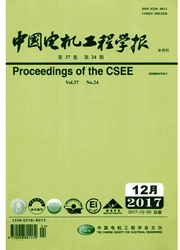

 中文摘要:
中文摘要:
分布式能源是能源系统的未来发展方向。针对分布式冷热电联产系统当前存在的燃料化学能直接燃烧不可逆损失大,微小型动力循环效率低,动力变温余热缺乏有效利用方法,以及系统变工况性能差等技术难题,文中围绕燃料化学能与热能综合梯级利用原理、多能源互补机理与全工况性能调控机制2个关键科学问题,从能的梯级利用、多能源互补、系统全工况性能主动调控3个方向开展研究。初步建立了能的综合梯级利用理论,在化石燃料与太阳能热化学互补、对转冲压发动机、热声发电等核心技术方面取得突出进展,并指导完成了兆瓦级分布式冷热电联供系统工程示范。研究成果可以为我国分布式能源的发展提供理论基础和自主创新技术支撑。
 英文摘要:
英文摘要:
Distributed energy is the future direction of energy system. Currently, distributed combined cooling, heating and power(CCHP) systems face a series of technical problems. The irreversible loss caused by direct combustion of fuel chemical energy is large; the efficiency of miniature power cycle is low; the effective utilization method of variable-temperature waste heat is scarce and the off-design performance of system is poor. The paper focused on two key scientific issues including the principal of comprehensive cascade utilization of fuel chemical energy and heat energy, and the mechanism of muti-energy complementarity and regulation of full condition performance. And then the paper carried out research from three directions such as the cascade utilization of energy, muti-energy complementarity and initiative regulation of full condition performance. The research initially established the theory of comprehensive cascade utilization of energy; achieved outstanding progress in the core technologies of the thermal chemical complementarity of fossil fuels and solar energy, the counter rotating ramjet engine and the thermoacoustic power generation, and guided a megawatt distributed combined cooling, heat and power(CCHP) system engineering demonstration. The results can provide theoretical basis and innovative technical support for the development of distributed energy in our country.
 同期刊论文项目
同期刊论文项目
 同项目期刊论文
同项目期刊论文
 期刊信息
期刊信息
